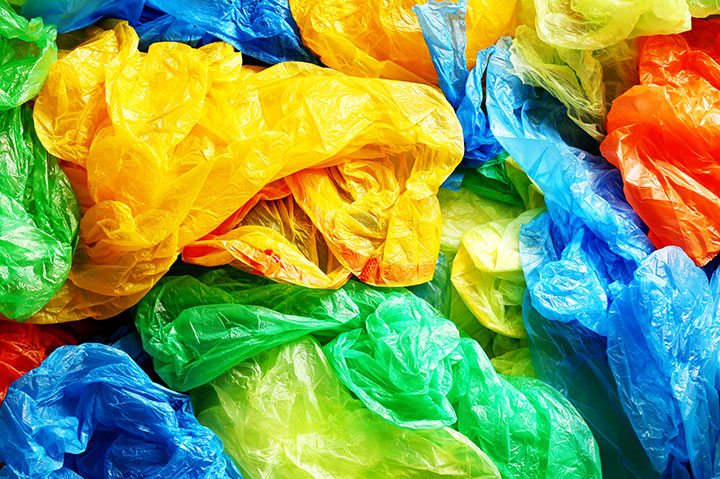Sustainability February 13, 2024
California Aims To Close Loophole on Single-Use Plastic Bag Ban
The state, which had the first bag ban a decade ago, found plastic waste actually increased because of the allowance of selling heavier-weight plastic bags at checkouts.
A decade after becoming the first state to ban single-use plastic bags, California is going back to the drawing board.

Despite the ban, plastic waste in the Golden State has actually been on the rise. A report from consumer advocacy group CALPIRG found that the amount of discarded plastic bags jumped 47% in 2022, compared to the year the bag ban was passed – from 154,385 tons of plastic bag waste to 231,072 pounds. The culprit, according to environmental groups, was letting consumers purchase heavyweight plastic bags – made from HDPE, rather than LDPE – that were billed as reusable in theory, but not in practice.
“Basically what happened is that plastic bag companies invented these thicker plastic bags that technically meet that definition of reusable but are clearly not being reused and don’t look like reusable bags, which just circumvent the law’s intent,” Jenn Engstrom, CALPIRG’s state director, told the Los Angeles Times.
To close that loophole, the California legislature has introduced two bills that would eliminate the option for customers to receive or purchase any kind of plastic bag at grocery, retail and convenience stores.
“They aren’t any more sustainable than the previous plastic bags,” California Assemblymember Rebecca Bauer-Kahan told the Sacramento Bee. “We’re closing the loophole and shutting the door on all plastic bags.”
If the proposed bills pass and are signed by the governor, California would no longer distribute plastic bags starting Jan. 1, 2026. Under that circumstance, shoppers would still be able to use re-used plastic bags, totes or paper bags for their goods. “Going to paper bags and truly reusable bags is critical to dealing with the waste problems we have,” Bauer-Kahan said.
California’s initial plastic bag ban sparked a wave of similar legislation across the country over the last decade. More than 10 states have tight restrictions/bans on single-use plastic bags. Colorado, Rhode Island, Connecticut, Delaware, Maine, New Jersey, New York, Oregon, Vermont and Washington all have restrictions. Hawaii doesn’t have a state-level ban, but counties enacted their own restrictions independently, effectively outlawing single-use plastic bags statewide.
Some retailers have also willingly begun cracking down on single-use plastic bags. Grocery chain Kroger is working to rid its stores of single-use plastic bags by 2025, and Walmart has stopped offering them at checkout in six states.
In addition to the environmental benefits of reducing single-use plastic, such bans have also been touted as an opportunity for promotional products distributors to sell branded, reusable totes. Jeremy Picker, CEO of AMB3R Creative (asi/590243), said as much when the Colorado ban was going into effect: “Once businesses start feeling the frustration from the consumer, then they will want to offer a variety of quality bags.”

Promo for the Planet is your destination for the latest news, biggest trends and best ideas to help build a more sustainable and socially-responsible industry.
